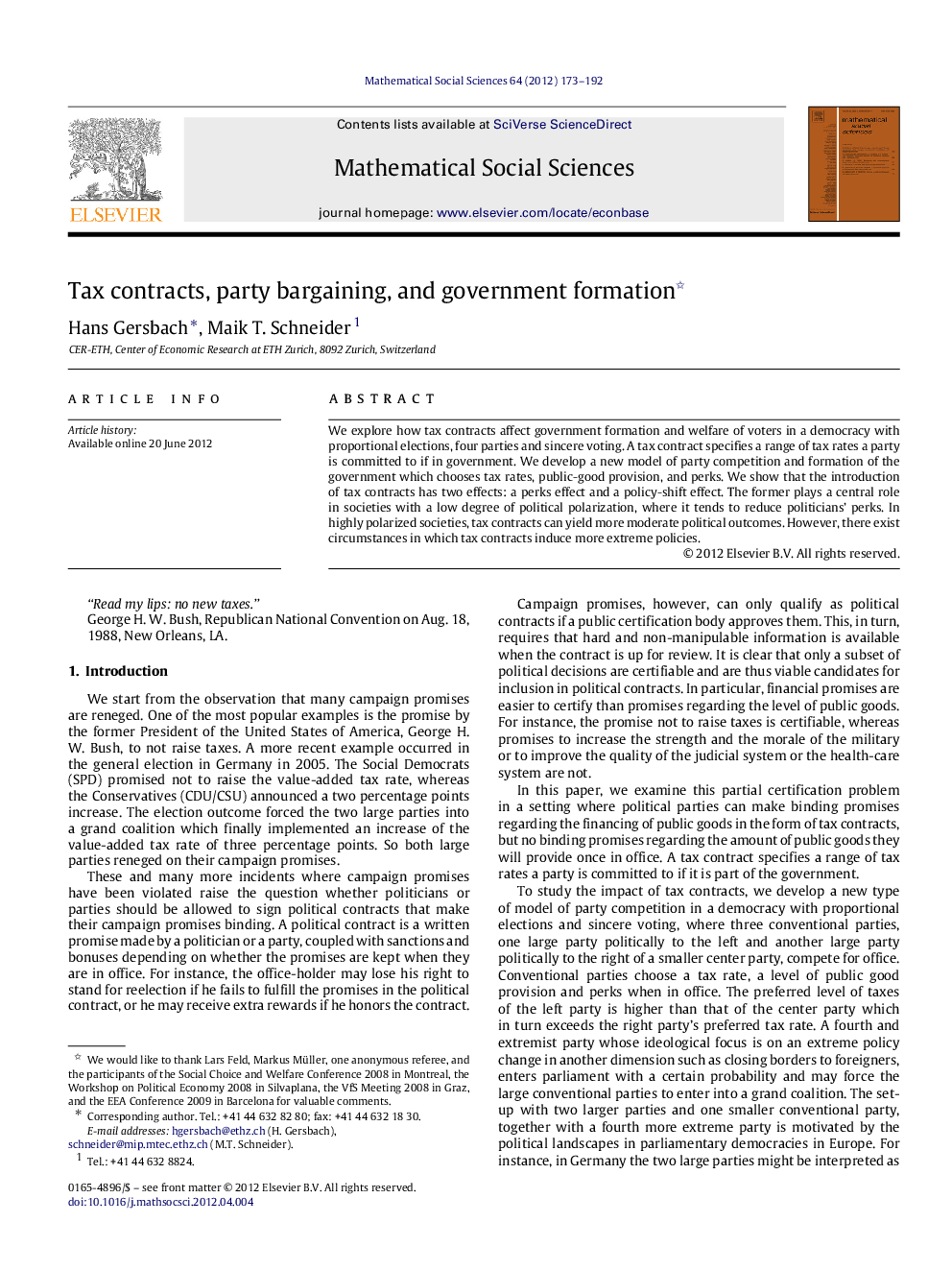| Article ID | Journal | Published Year | Pages | File Type |
|---|---|---|---|---|
| 972051 | Mathematical Social Sciences | 2012 | 20 Pages |
We explore how tax contracts affect government formation and welfare of voters in a democracy with proportional elections, four parties and sincere voting. A tax contract specifies a range of tax rates a party is committed to if in government. We develop a new model of party competition and formation of the government which chooses tax rates, public-good provision, and perks. We show that the introduction of tax contracts has two effects: a perks effect and a policy-shift effect. The former plays a central role in societies with a low degree of political polarization, where it tends to reduce politicians’ perks. In highly polarized societies, tax contracts can yield more moderate political outcomes. However, there exist circumstances in which tax contracts induce more extreme policies.
► How tax contracts affect government formation and welfare in a four-party system. ► Tax contracts have two effects: a perks effect and a policy-shift effect. ► In societies with low political polarization, they reduce politicians’ perks. ► In highly polarized societies, they can yield more moderate political outcomes. ► There are circumstances in which tax contracts induce more extreme policies.
